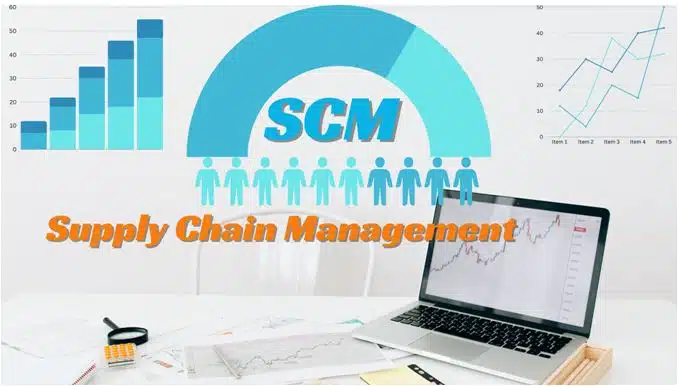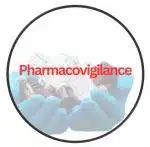“Explore the intricacies of Supply Chain Management (SCM) in the pharmaceutical industry, from sourcing raw materials to delivering life-saving medications. Dive into challenges, innovations, and the critical role of logistics in ensuring patient safety and product integrity.”
Table of Contents
Concepts of Supply Chain Management
Supply Chain Management (SCM) refers to the oversight and management of the entire process that involves the production and distribution of goods or services, from the raw material stage to the end consumer. It encompasses the coordination and integration of these processes to ensure that goods and services are produced and delivered as efficiently and cost-effectively as possible.

Concepts of Pharmaceuticals Supply Chain Management
Pharmaceutical supply chain management (SCM) refers to the oversight of materials, information, and finances as they move from suppliers to manufacturers to wholesalers to retailers and finally to patients. Effective supply chain management is crucial in the pharmaceutical industry to ensure the availability of medicines, maintain their quality, and meet regulatory requirements.
The Function of Supply Chain Management Executive in the Pharmaceuticals Industry
A Supply Chain Management (SCM) Executive in the pharmaceutical industry plays a critical role in ensuring the seamless flow of products, from raw materials to finished goods, while maintaining regulatory compliance, quality assurance, and cost-effectiveness. Here are some of the key functions and responsibilities of a Supply Chain Management Executive in pharmaceuticals:
Strategic Planning: Develop and implement supply chain strategies that align with the company’s overall business objectives and growth plans.
Sourcing and Procurement: Oversee the sourcing and procurement of raw materials, active pharmaceutical ingredients (APIs), packaging materials, and other supplies required for production. This involves negotiating contracts, managing supplier relationships, and ensuring timely delivery.
Inventory Management: Monitor inventory levels to ensure optimal stock levels while minimizing carrying costs and the risk of stockouts. Implement inventory management systems and processes to track, manage, and optimize inventory across the supply chain.
Demand Forecasting: Work closely with sales, marketing, and production teams to forecast demand for pharmaceutical products accurately. Utilize forecasting tools and methodologies to predict future demand and adjust supply chain operations accordingly.
Regulatory Compliance: Ensure compliance with local, national, and international regulations and standards related to pharmaceutical manufacturing, distribution, and supply chain management. This includes Good Manufacturing Practices (GMP), Good Distribution Practices (GDP), and other relevant regulations.
Quality Assurance: Collaborate with quality assurance and quality control teams to ensure that products meet the required quality standards throughout the supply chain. Implement quality management systems and processes to identify, address, and prevent quality issues.
Logistics and Distribution: Coordinate logistics and distribution activities, including transportation, warehousing, and distribution of pharmaceutical products. Ensure timely and efficient delivery of products to customers while minimizing transportation costs and lead times.
Risk Management: Identify potential risks and vulnerabilities in the supply chain, such as supply shortages, supplier disruptions, regulatory changes, and geopolitical issues. Develop and implement risk mitigation strategies to address these challenges and ensure business continuity.
Technology and Innovation: Stay abreast of the latest trends, technologies, and innovations in supply chain management and the pharmaceutical industry. Leverage technology solutions, such as supply chain management software, data analytics, and automation, to improve efficiency, visibility, and decision-making.
Cross-functional Collaboration: Collaborate closely with cross-functional teams, including manufacturing, R&D, sales, finance, and regulatory affairs, to align supply chain strategies and operations with overall business objectives.
Sustainability: An increasing focus is being placed on incorporating sustainable practices into pharmaceutical supply chain management. This includes reducing waste, optimizing transportation routes, minimizing carbon footprint, and promoting responsible sourcing practices.
Overall, a Supply Chain Management Executive in the pharmaceutical industry plays an important role in ensuring the efficient, compliant, and cost-effective management of the supply chain, ultimately contributing to the success and growth of the organization.
Read Also: GMP Guidelines for Pharmaceutical Industry
The Importance of Supply Chain Management Executive in the Pharmaceuticals Industry
Supply chain management (SCM) executives play an important role in the pharmaceutical industry, given the unique challenges and complexities associated with the production, distribution, and delivery of pharmaceutical products. Here are some reasons highlighting the importance of a supply chain management executive in the pharmaceutical sector:
Patient Safety and Health: Pharmaceuticals directly impact patient health. Ensuring that medicines are produced, stored, and transported under optimal conditions is crucial. SCM executives ensure that the right medicines reach patients without any compromise in quality.
Regulatory Compliance: The pharmaceutical industry is heavily regulated. SCM executives must navigate and ensure adherence to a myriad of regulations concerning manufacturing standards, storage conditions, transportation guidelines, and more.
Inventory Management: Pharmaceuticals have a limited shelf life, and many require specific storage conditions, such as refrigeration. Effective inventory management by SCM executives ensures that medications are neither overstocked (leading to waste) nor understocked (leading to shortages).
Supply Chain Resilience: The industry often faces disruptions, such as raw material shortages, geopolitical issues, or global pandemics. SCM executives strategize to create resilient supply chains that can adapt to unforeseen challenges, ensuring continuity of medication supply.
Cost Efficiency: Pharmaceuticals can be expensive to produce and distribute. SCM executives work on optimizing the supply chain to reduce costs without compromising quality, ensuring that medicines are accessible and affordable.
Supplier Management: A robust supply chain relies on reliable suppliers. SCM executives are responsible for selecting, evaluating, and managing relationships with suppliers to ensure consistency, quality, and timely delivery of raw materials.
Collaboration with Other Departments: SCM executives collaborate with R&D, manufacturing, sales, and marketing teams. This cross-functional collaboration ensures alignment in product development, production planning, demand forecasting, and market strategies.
Technological Advancements: With the advent of technologies like blockchain, the Internet of Things (IoT), and advanced analytics, SCM executives can leverage data-driven insights for better decision-making, traceability, and efficiency in the supply chain.
Global Supply Chain Management: The pharmaceutical industry is global, with supply chains spanning multiple countries. SCM executives must understand global trade dynamics, regulations, and cultural nuances to manage international supply chains effectively.
Ethical Considerations: The pharmaceutical supply chain also has ethical considerations, such as ensuring fair labor practices, avoiding counterfeit drugs, and preventing diversion to illegal markets. SCM executives play a role in implementing and monitoring ethical practices across the supply chain.
Read Also: 100 Questions and Answers About Pharmaceutical
Conclusion:
In summary, effective supply chain management is critical for ensuring the availability, quality, and safety of pharmaceutical products. It requires a comprehensive approach that addresses regulatory compliance, quality control, cold chain management, inventory management, traceability, supplier management, risk management, collaboration, technology utilization, and sustainability.
The role of a Supply Chain Management executive in the pharmaceutical industry is multifaceted and critical for ensuring the safe, efficient, and compliant delivery of life-saving medications to patients worldwide.
Frequently Asked Questions (FAQs)
What is Supply Chain Management (SCM)?
SCM refers to the end-to-end process of planning, implementing, and controlling the efficient flow of goods, services, and information from the point of origin to the final consumer. It involves a network of organizations, resources, activities, and technologies that work together to deliver products or services to customers.
Why is Supply Chain Management important for businesses?
SCM plays a crucial role in enhancing operational efficiency, reducing costs, improving customer satisfaction, and maintaining a competitive edge. It helps businesses optimize their processes, manage inventory effectively, minimize lead times, and respond efficiently to changes in demand or market conditions.
Which are a supply chain’s essential elements?
The primary components of a supply chain include the following:
Planning and Forecasting: Predicting demand and planning production accordingly.
Sourcing: Selecting and managing suppliers to obtain necessary materials or services.
Production: Manufacturing and assembling products based on demand.
Distribution: Transporting and storing finished goods.
Inventory Management: Controlling stock levels to meet demand without excess.
How does technology impact Supply Chain Management?
Technology plays a vital role in SCM through the use of tools like:
Enterprise Resource Planning (ERP) systems: Integrating various business processes and data.
Advanced Analytics: Utilizing data to improve forecasting and decision-making.
IoT (Internet of Things): Tracking and monitoring the movement of goods in real-time.
Blockchain: Enhancing transparency and traceability in supply chains.
What challenges do businesses face in Supply Chain Management?
Common challenges include:
Globalization: Managing complex, global supply chains.
Demand Variability: Dealing with fluctuations in customer demand.
Supply Chain Disruptions: Coping with unexpected events like natural disasters or geopolitical issues.
Regulatory Compliance: Adhering to various regulations and standards.
Technology Integration: Ensuring seamless integration of new technologies into existing systems.

Abdus Sobhan Salim is professional experienced pharmacist in pharmaceuticals, author and founder of pharmabossbd.com, the first Bangladeshi pharmaceutical blogger since 2019.



